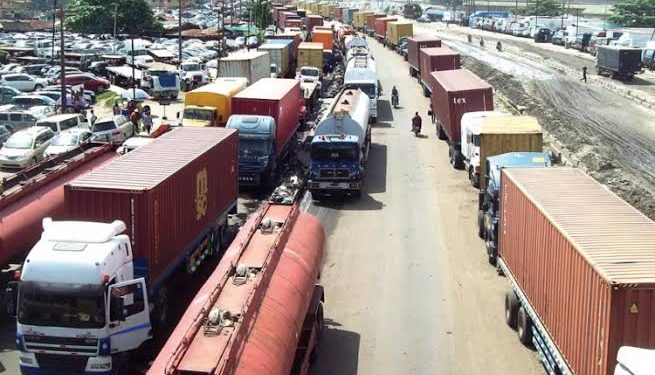The Lagos State Government and key transport unions have agreed on a new N10,000 enforcement fee for trucks operating through the Lekki-Epe corridor under the electronic call-up system, ending weeks of tension and disruptions in petroleum product lifting.
The resolution followed a high-level meeting held at the Dangote Refinery on Wednesday, facilitated by Lagos State authorities in collaboration with Dangote Industries Limited. Enforcement of the revised fee will take effect from August 1, 2025.
Previously, a N12,500 levy imposed by the state government triggered a suspension of operations by petroleum marketers and truck owners, who decried the charge as excessive and unsustainable. The shutdown affected the movement of products from both the Dangote Refinery and Lekki Deep Seaport, jeopardising critical national supply chains.
The Lekki-Epe corridor plays a pivotal role in the nation’s energy distribution network, given the presence of the 650,000-barrels-per-day Dangote Refinery and related infrastructure.
To address the disruption, Lagos State convened a dialogue with major stakeholders, including the Nigeria Union of Petroleum and Natural Gas Workers (NUPENG), the Nigerian Association of Road Transport Owners (NARTO), and other transport bodies.
According to a communiqué issued after the meeting, all parties agreed to adopt a N10,000 enforcement fee for trucks accessing the corridor through the electronic call-up system.
Signatories to the agreement include Lagos State Commissioner for Transportation, Seun Osiyemi; NUPENG President, Williams Akporcha; and NARTO President, Yusuf Othman, among others.
The electronic call-up system, introduced by the state to curb persistent traffic congestion along the Lekki-Epe axis, is expected to streamline truck movement into high-traffic facilities like the refinery and the seaport.
With this agreement, operations are expected to normalise, and the call-up system is anticipated to bring lasting order to the area while supporting efficient logistics operations crucial to Nigeria’s energy and trade sectors.









